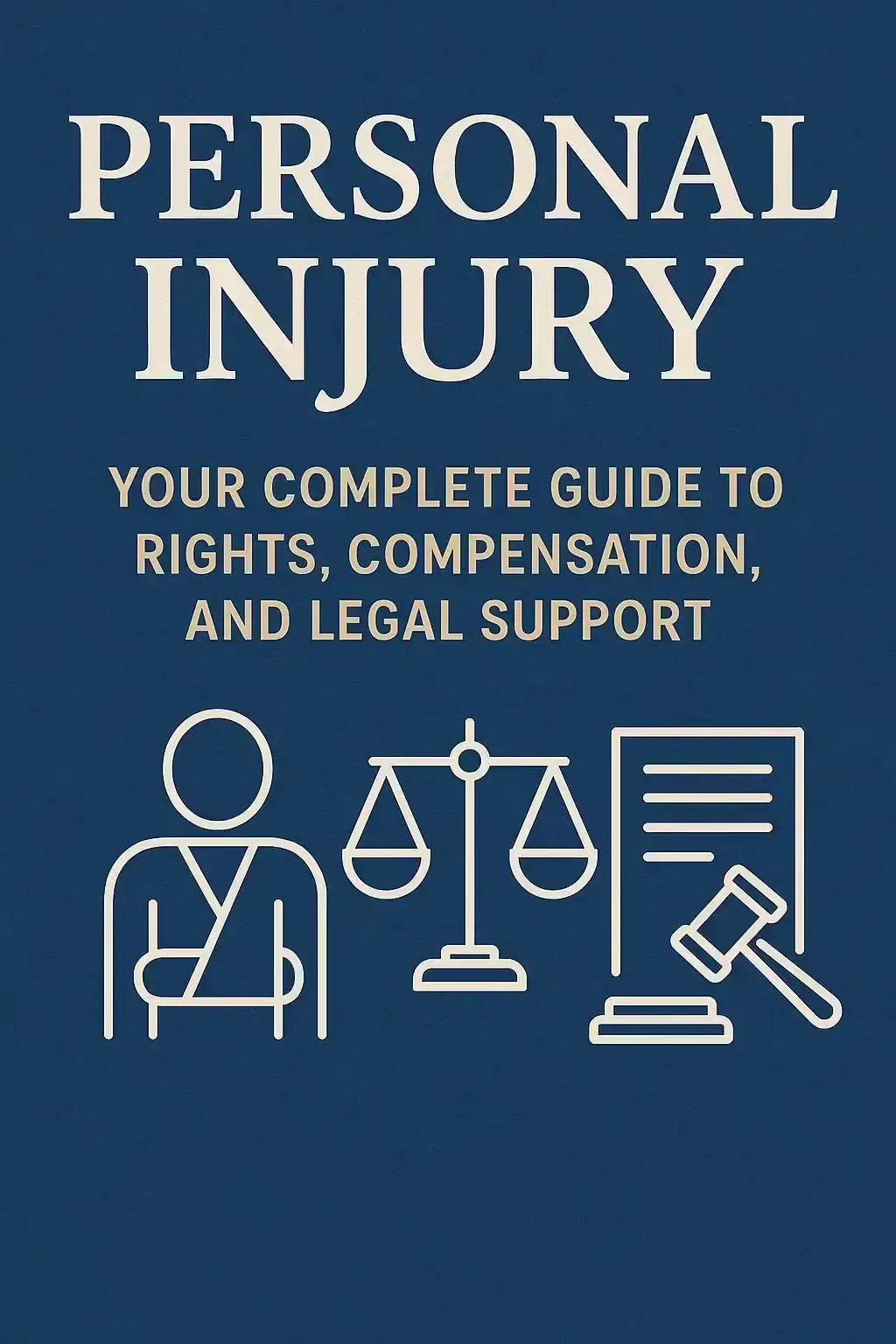

Personal Injury: Your Complete Guide to Rights, Compensation, and Legal Support
Personal injury refers to physical, emotional, or psychological harm caused to an individual due to the negligence or intentional act of another party. The goal of personal injury law is to compensate victims for their losses, including medical bills, lost income, pain and suffering, and emotional distress.
Common Types of Personal Injuries
Vehicle Accidents
Car, motorcycle, truck, and bicycle accidents are among the most common personal injury cases. Victims can claim compensation for medical costs, vehicle damage, and pain and suffering.
Slip and Fall Accidents
Property owners have a legal duty to maintain a safe environment. Negligence that causes a slip or fall may entitle victims to damages.
Medical Malpractice
Doctors and medical professionals must provide standard care. Mistakes, misdiagnosis, or surgical errors can lead to personal injury claims.
Workplace Injuries
Employees injured on the job may qualify for workers’ compensation or additional claims if negligence is involved.
Product Liability
Defective or unsafe products can harm consumers. Companies may be liable if their product causes injury.
Defamation or Emotional Distress
Non-physical personal injuries, such as slander, libel, or harassment, can also be grounds for legal claims.
Understanding Personal Injury Law
Negligence
Negligence is the most common basis for personal injury cases. To prove negligence, the plaintiff must show:
- Duty of care existed
- Duty was breached
- Breach caused injury
- Damages resulted from the injury
Strict Liability
In some cases, liability exists regardless of fault, such as defective products or hazardous activities.
Intentional Torts
Injuries caused intentionally, such as assault, battery, or defamation, fall under intentional torts and can lead to higher compensation.
How to File a Personal Injury Claim
- Seek Medical Attention – Prioritize health and document all injuries.
- Document Evidence – Photos, witness statements, police reports, medical records.
- Notify Relevant Parties – Inform insurance companies or responsible parties promptly.
- Consult a Personal Injury Lawyer – Experienced lawyers improve claim outcomes.
- File the Claim – Claims may go through negotiation, settlement, or court.
- Settlement or Trial – Many cases settle out of court, but some go to trial for maximum compensation.
Calculating Compensation in Personal Injury Cases
- Medical Expenses: Current and future treatment costs.
- Lost Wages: Time off work due to injury.
- Pain and Suffering: Emotional and physical distress.
- Property Damage: Repair or replacement costs.
- Punitive Damages: In cases of extreme negligence or intentional harm.
Common Mistakes to Avoid in Personal Injury Claims
- Delaying medical treatment
- Not reporting the accident promptly
- Admitting fault or apologizing at the scene
- Sharing details on social media
- Choosing an inexperienced lawyer
Choosing the Right Personal Injury Lawyer
- Experience: Lawyers specializing in personal injury cases are preferable.
- Track Record: Check past settlements and success rate.
- Communication: Clear updates and responsive service.
- Fees: Most personal injury lawyers work on a contingency basis (no win, no fee).
Frequently Asked Questions
Q1: How long do I have to file a personal injury claim?
A: It depends on your state or country’s statute of limitations, usually between 1–3 years.
Q2: Can I handle a personal injury claim myself?
A: While possible, hiring a lawyer increases your chances of getting fair compensation, especially in complex cases.
Q3: What if the other party has no insurance?
A: You may still recover damages through your own insurance or legal action against the party.
Q4: How much does a personal injury lawyer cost?
A: Most work on a contingency fee basis, meaning they only get paid if you win.
Conclusion
Understanding personal injury law and following the proper steps can help you secure fair compensation. Always document evidence, avoid mistakes, and consult an experienced lawyer to improve your chances of success.
Need Legal Help?
Consult a trusted personal injury lawyer today to protect your rights and maximize compensation.










